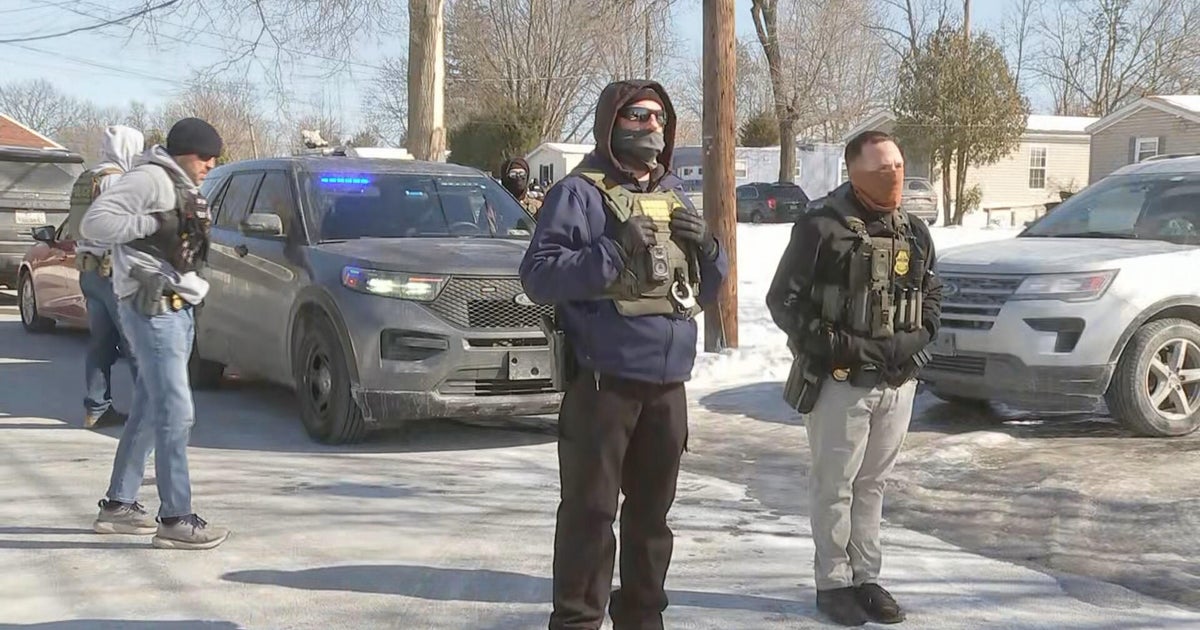Transcript: Neel Kashkari on "Face the Nation," August 2, 2020
The following is a transcript of an interview with Neel Kashkari, the president and CEO of the Federal Reserve Bank of Minneapolis, that aired Sunday, August 2, 2020, on "Face the Nation."
JOHN DICKERSON: Welcome back to FACE THE NATION. We want to go now to Neel Kashkari, president and CEO of the Federal Reserve Bank of Minneapolis, and he is in Minneapolis this morning. Good morning.
FEDERAL RESERVE BANK OF MINNEAPOLIS PRESIDENT NEEL KASHKARI: Good morning.
JOHN DICKERSON: I want to start with the question of the GDP numbers. They were awful in the last quarter. What did you see inside of those numbers?
KASHKARI: Well, the thing that surprised me the most economically, we knew the GDP would be very low with 20 million Americans still out of work, you know, the economy is reeling. There's one bright spot that I saw, though. The US personal savings rate has taken off. Before the crisis, it was around 8%. Now it's around 20%. Now, let me tell you what's going on. Those of us who are fortunate enough to still have our jobs, we're saving a lot more money because we're not going to restaurants or movie theaters or vacations. That actually means we have a lot more resources as a country to support those who've been laid off. And so while historically we would worry about racking up too much debt, we're generating this savings ourselves. That means Congress has the resources to support those who are most hurting.
JOHN DICKERSON: So one of the things that Republicans have brought up when they talk about this aid bill and particularly the size of the unemployment benefit, is that it's putting too much strain on the deficit. And so is your point that- that the private savings is a cushion against that strain? That's the first part of the question. The second part is, but won't racking up debt ultimately be something we have to deal with in the long term?
KASHKARI: Well, right now, we're generating so much more savings than we have before. It's simply not an issue because we're not having to go abroad to fund these extra- the extra money for the CARES Act or whatever is to come. So that provides a lot of relief right now. And if you look over the long term, our inflation has been very low. Inflation continues to be low. Inflation expectations continue to drift lower. Right now, the US can fund itself at very, very low rates. Congress should use this opportunity to support the American people and the American economy. I'm not worried about it. We- if we get the economy growing, we will be able to pay off the debt.
JOHN DICKERSON: Let me say, inside of this bill they're debating on the $600 unemployment, weekly unemployment help, one of the Republican arguments is that at $600 there are some number of workers who are getting paid more than they would in a job and therefore they're staying at home. Do you see any evidence in the data that supports public policy based on that idea?
KASHKARI: Well, not right now, not when 20 million people are out of work relative to February. There's just so many fewer jobs than there are workers available. At some point it'll be an issue. When we get the unemployment rate eventually back down to 5% and we want to get it back down to 4% or 3.5% where it was before, yes, that disincentive to work becomes material. But right now it's simply not a factor in the macro economy that we have in the US because we have so many millions of Americans out of work.
JOHN DICKERSON: What is your view about the path back to economic health? There have been halting efforts to reopen and to get the economy going again. Are they going to continue being halting until there is a vaccine? When does robust behavior come back? And what is the central- how are people behaving when it does get more robust?
KASHKARI: Well, you're right, it's- it's really the virus and our ability to control the virus, either through clamping back down, getting the case count down so that we can test and trace and keep this thing under control, or eventually getting a vaccine or a robust therapy. That's the only way we're really going to have a real robust economic recovery. Otherwise, we're going to have flare ups, lockdowns and a very halting recovery with many more job losses and many more bankruptcies for an extended period of time unfortunately.
JOHN DICKERSON: There's no interest in the president- the president is not interested in locking things down again at all. In fact, he's pushing in the other direction. So if that's not going to happen, does that hurt the economy more? And are there losses that you can't recoup in a recovery that might happen during that period of time?
KASHKARI: For sure. I mean, if we were to lock down really hard, I know I hate to even suggest it. People will be frustrated by it. But if we were to lock down hard for a month or six weeks, we could get the case count down so that our testing and our contact tracing was actually enough to control it the way that it's happening in the Northeast right now. They had a rocky start, but they're doing a pretty good job right now. Now, if we don't do that and we just have this raging virus spreading throughout the country with flare ups and local lockdowns for the next year or two, which is entirely possible, we're going to see many, many more business bankruptcies, small businesses, big businesses, and that's going to take a lot of time to recover from to rebuild those businesses and then to bring workers back in and re-engage them in the workforce. That's going to be a much slower recovery for all of us.
JOHN DICKERSON: What role does fear play in your assessment of people's economic behavior? If two thirds of the economy is driven by consumer behavior, how much is fear of just getting sick, what is at the center of this and therefore a virus question, than it is poking and pushing at supply and demand through legislation or some other matters?
KASHKARI: Oh fear's a huge factor. You can see this around the world. Some countries that didn't lock down officially based on public policy had a similar economic response because their own citizens were afraid and they said, no, I'm not taking that risk. I'm going to shelter at home. And so we all- many of your viewers, the American people, are paying close attention to what's happening to the virus. And you're seeing a similar economic behavior around the country, regardless of local public policy. So fear is a huge driver, and that's why they need to have confidence that they will be safe, their families will be safe, their kids will be safe. And until we have that real confidence, not just wishful thinking, but in the data, real evidence that it's safe, we're not going to have a meaningful economic recovery.
JOHN DICKERSON: Alright. Neel Kashkari, thank you so much for being with us. Again, breaking down the economic numbers. And we will be right back with the latest on the coronavirus and Dr. Scott Gottlieb.



